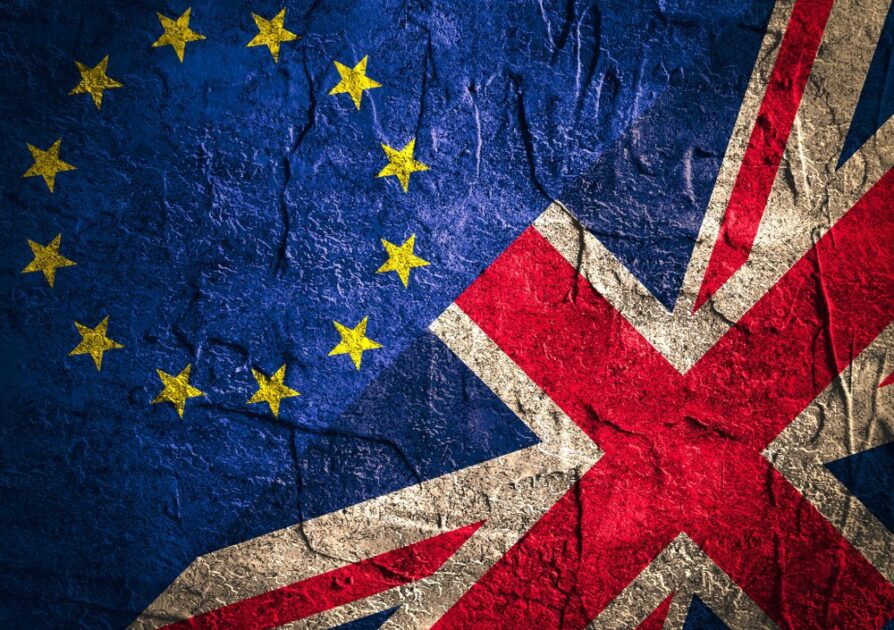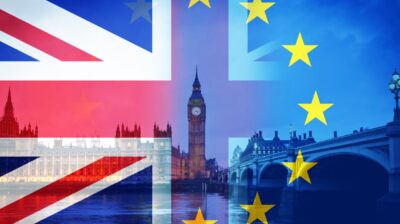In or Out? The costs of a Brexit and the Irish effect
How will Brexit affect Ireland?
Written by Patrick Ferrity
News
Information about the latest news and opportunities.

The United Kingdom European Union membership referendum is scheduled to take place across the United Kingdom and Gibraltar on 23rd June 2016. This will be the second time that the British people will vote on European membership, the first taking place in 1975, when the European Union was known as the European Economic Community (EEC). This referendum was approved by the British electorate with 67% of the vote. However, in recent years Euroscepticism has been on the rise in Britain. Issues such as migration, trade, transparency and sovereignty have come to the forefront of the debate.
The immediate costs of a 'Brexit' are not yet obvious to many of the UK audience. Many in favour of the Brexit see the EU as over bureaucratic and infringing on Parliamentary Sovereignty. Immigration into and from the EU has been a contentious issue at the forefront of the debate. EU law permits the free movement of EU citizens between member states and permits them to work in the EU country of their choice. Given the prosperity of the UK compared with many other member states in the EU, there has been a large increase in the number of migrants into the UK, over the past number of decades. The Remain Campaign believes that immigration is necessary to the running of the UK economy, particularly services such as the NHS.
There is a general belief among the Leave camp that the EU has been taking advantage of the success of the UK’s economy which is the second biggest in the EU. In fact, in 2014, The UK received only half the amount in regional subsidies compared to what it contributed to the European economy.
Negotiating trade deals
Britain will face very strong pressure to negotiate some trade deal with the EU if a Brexit were to occur as 44% of the UK’s goods are exported to the EU. The EU will be in a position of strength as it will have little incentive to be lenient with Britain due to the fear of further member states leaving. Britain would also find itself excluded from the EU’s trade agreements with the rest of the world and will struggle to negotiate their own.
The two leave camps are much divided. First there is "Vote Leave", a moderate group of conservative centrists, will argue the EU is too costly and ask people to vote with their wallets. The second group is "Leave.EU", which is the UKIP campaign (except for UKIPs one MP Douglas Carswell who has aligned himself with the more moderate Vote Leave camp). This group will argue about immigration and borders. The difference between the two camps is one is part of the establishment, the other is anti-establishment.
The Remain Campaign is called "Britain Stronger in Europe". Connotations of strength and patriotism is necessary for this camp. They should not emphasise that Britain is too small and weak to operate outside the EU, rather they should emphasise that a strong Britain is even stronger within the EU. This camp is less divided than the leave camp. The Labour Party has struggled with establishing a coherent position. There is a strong risk that Labour will win the referendum but lose the politics.
If a 'Brexit' were to occur, the costs to the UK's foreign and security policy would far outweigh the benefits. EU membership has been a key part of UK diplomacy and foreign policy since the UK’s inception into the EEC. It has become too intrinsically intertwined with the EU that it is difficult to differentiate these aspects, not only in relation to foreign and security policy, but numerous other broad policy areas.
The UK would face huge challenges in attempting to influence the EU from the outside rather than the inside as relations with other member states would have to be recalibrated. Moreover, the UK would spend the next decade attempting to re-establish its diplomatic agenda in order to adapt to its new found position. The Remain Campaign believes that the UK has stronger global influence within the EU than on its own, alternating between acting independently and using common resources.
The UK faces a multitude of security challenges, and situations such as these require multi-institutional and multi-national cooperation. The process of EU integration has provided peace, a peace that in the past the UK has not enjoyed, in a continent that for centuries has been plagued by war. Furthermore, the UK's interests with its Middle Eastern and 'Horn of Africa' projects would come into question. Thus, there would not only be macro, but also micro consequences, resulting from a 'Brexit'.
The impact on Ireland
Given the proximity of Ireland to the UK, it is likely that Ireland will particularly feel the effects of a Brexit if the UK chooses to leave the EU. The UK is Ireland’s largest trading partner with 63 billion euro a year flowing between the two countries. If the UK decides to leave the EU, trade will fall significantly between our two countries and could lead to the establishment of custom posts, adding costs to businesses. There could be the imposition of tariffs on goods which would raise the price of goods for the people of Ireland. There is a common travel area between the UK and Ireland protected by EU treaties which allows the citizens of both countries to travel freely and work in either country.
A Brexit could also have serious implications on the political stability of Northern Ireland. Given that 30,000 people commute across the border every day and that many people have family on both sides of the border, a Brexit could lead to strict border controls between the Irish-UK border. The EU has been involved heavily in the Northern Irish peace process and encouraged dialogue between the UK and Ireland in relation to the region. A Brexit could undermine many of the institutions that the Good Friday Agreement established.
I believe the results of the referendum will probably be very close, with the public voting to Remain in the UK. The referendum has been aggressive, and if it is close, it will not settle the issue, but rather, like the Scottish referendum, it will remain on the political agenda, with a second referendum happening within 10 or 20 years. If there is a vote to leave, the EU will be incentivised to make leaving look like a nightmare, so the UK will probably not get a good deal.





